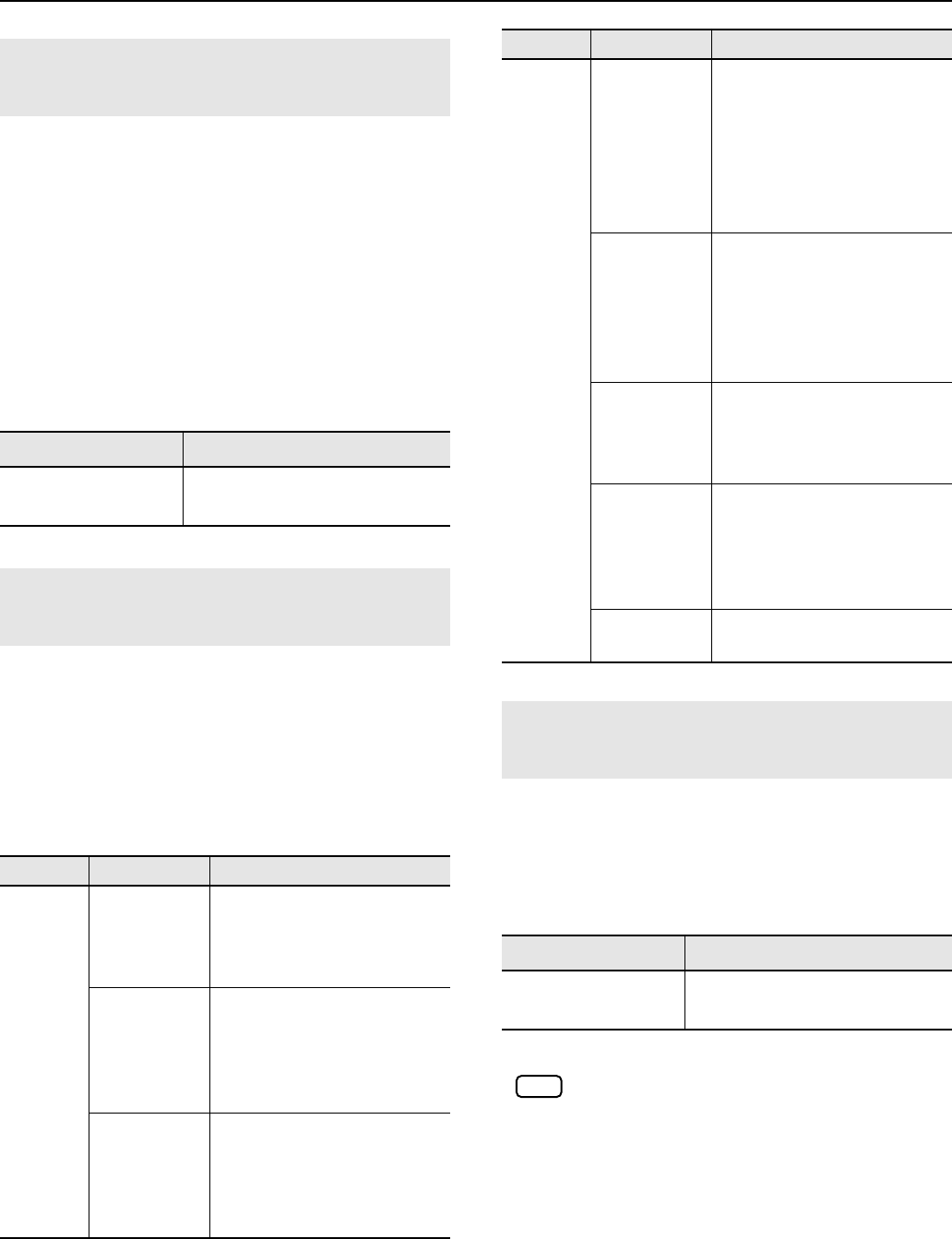
66
Detailed Settings for Each Function ([EDIT] Button)
This selects the number of parts for the RD-300GX.
When set to “16PART+PERF,” the performance on the
keyboard is not affected by MIDI messages from the MIDI IN
connector or song data played by the RD-300GX. This is
useful when you want to perform on the keyboard while
playing song data with the RD-300GX.
If you select “16PART,” the keyboard part you yourself play
can use the same part as the song data, meaning that you can
specify program changes or bank selections within the song
data so that the tone of the keyboard part will be switched
automatically.
This sets the tuning.
Most modern songs are composed and played with the
assumption that equal temperament will be used, but when
classical music was composed, there were a wide variety of
other tuning systems in existence. Playing a composition with
its original tuning lets you enjoy the sonorities of the chords
that the composer originally intended.
When playing with tuning other than equal temperament, you
need to specify the keynote for tuning the song to be
performed (that is, the note that corresponds to C for a major
key or to A for a minor key). If you choose an equal
temperament, there’s no need to select a keynote.
When performing in ensemble with other
instruments, be aware that depending on the key,
there may be some shifting of the pitch. Tune the
RD-300GX to the fundamental pitch of the other
instruments.
Selecting the Number of Parts
(Part Mode)
Parameter
Value
Part Mode
16PART,
16PART+PERF (Performance)
Setting the Tuning Method
(Temperament)
Parameter
Value Description
Tempera-
ment
EQUAL
This tuning divides an octave into
12 equal parts. Every interval
produces about the same amount
of slight dissonance.
JUST(MAJOR)
This scale eliminates dissonance
in fifths and thirds. It is unsuited
to playing melodies and cannot
be transposed, but is capable of
beautiful sonorities.
JUST(MINOR)
The scales of the major and
minor just intonations are
different. You can get the same
effect with the minor scale as
with the major scale.
Tempera-
ment
PYTHAGOREAN
This scale devised by the
philosopher Pythagoras
eliminates dissonance in fourths
and fifths. Dissonance is
produced by third-interval
chords, but melodies are
euphonious.
KIRNBERGER
This scale is a modification of
the meantone and just
intonations that permits greater
freedom in transposition to other
keys. Performances are possible
in all keys (III).
MEAN TONE
This scale makes some
compromises in just intonation,
enabling transposition to other
keys.
WERCKMEISTER
This is a combination of the
mean tone and Pythagorean
scales. Performances are
possible in all keys (first
technique, III).
ARABIC
This scale is suitable for Arabic
music.
Selecting the Keynote
(Temperament Key)
Parameter
Value
Temperament Key
C, C#, D, Eb, E, F, F#, G, G#, A,
Bb, B
Parameter
Value Description
NOTE
RD-300GX_e.book 66 ページ 2008年2月14日 木曜日 午後1時26分


















